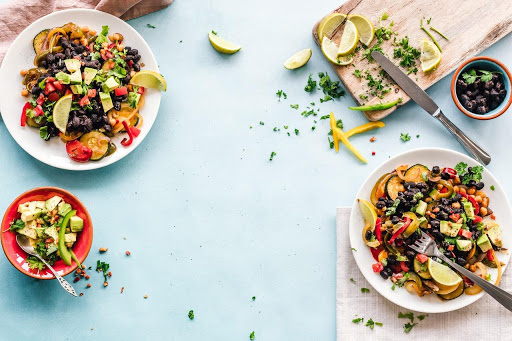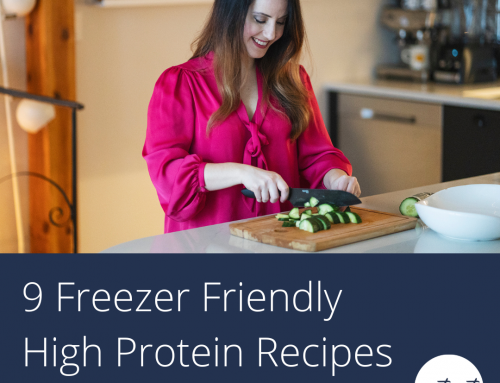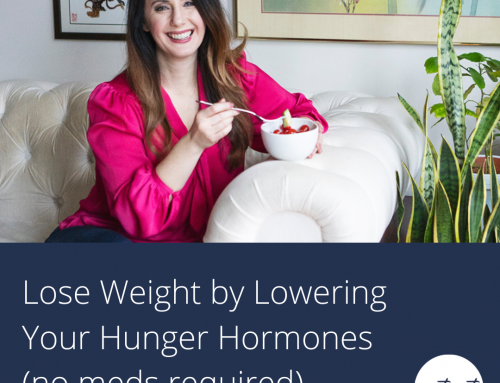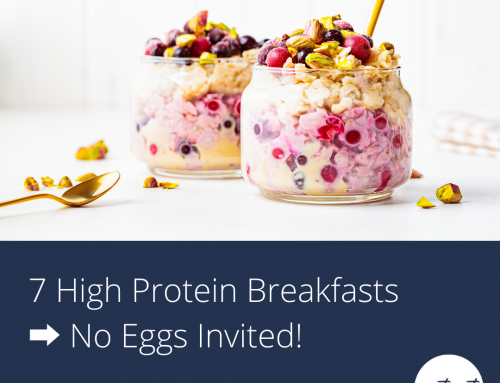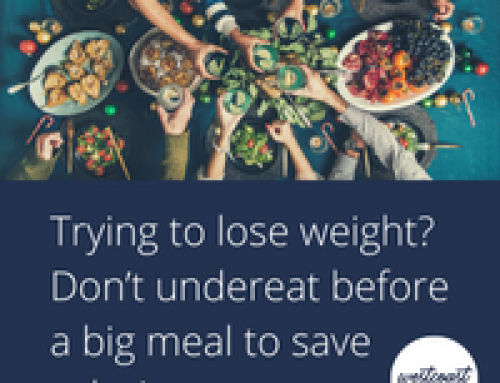Plant based eating encompasses a spectrum of diet types, both trendy and timeless. Today we’ll focus on vegetarian and vegan, and what to consider if you’ve been considering a switch or are just not feeling great on your current plant-based diet. Like every style, it helps some people feel incredible and just doesn’t work for others. Don’t ever forget your body is unique in many ways – from your microbiome and digestive health, to your taste preferences and metabolism. Don’t let any corner of the internet scare you into doing what worked for them.
A note: While there are many ethical reasons someone may consider veganism, we’re looking at just nutrition and physiology here today.
The basics: What kind of vegetarian?
Vegetarian can mean a wide variety of things to a wide variety of people. Here’s a few of the most common.
- Vegetarian: At it’s core, abstaining from meat including red meat, poultry, and sometimes fish and seafood.
- Lacto or Lacto-ovo vegetarian: You may avoid the meats above, but do consume milk/dairy products such as yogurt or cheese, and eggs.
- Pescatarian: Avoids red meat and poultry but may feel comfortable with fish and seafood.
- Vegan: The strictest of the group, vegans avoid all meat, fish/seafood, dairy products AND animal by-products such as honey, some forms of white sugar, gelatin and more.
Why might a vegetarian diet be right for me?
Many clients find the increase in plant foods (and often fibre to go along with it) helps drive up energy, keep the bowels moving easily, and steady mood. There are of course an endless number of ethical, cultural, and religious reasons that may resonate with you. Vegetarian diets that rely on real, whole foods (not the processed/packaged stuff) can also be budget friendly – beans, lentils and other legumes are inexpensive and filling proteins. The last reason I see clients shift towards vegetarianism is taste preferences, some clients feel averse to meat or have anxiety about food safety and reheating and feel more comfortable with plant based proteins day to day.
You may not want to go vegetarian if…
- You are currently struggling with bloating, irritable bowel syndrome, or small intestinal bacterial overgrowth.
- The increase in carbs and fermentables from the plant proteins will be a challenge until you sort out the underlying issues. Already on one? We’ll make it work – it just takes more planning and a somewhat more restricted diet.
- You are currently iron deficient. Iron deficiency is SO common in my female clients to start with, and most of the heavy hitters for iron are animal based. I usually recommend we get your iron back into the normal range before any big dietary transition, but especially if the goal is to eventually be a vegetarian.
- Pregnancy or fertility- key nutrients for fertility are also harder to get on a vegetarian or vegan diet (Choline, EPA and DHA, iron).
- Again it is completely possible to both get pregnant and have a healthy pregnancy on a plant based diet, but it requires extra careful planning, more supplementation and a higher degree of diet monitoring (on your own or with a pro to help). If you’re established that is all much easier, but if you are new to plant based that might mean nutrition holes that impact fertility. We can focus on building in more plants, without the restriction, until you’re in a comfortable place to transition more easily.
Key nutrients to plan for:
Iron
- Plant based iron(non-heme) is harder to “grab” and absorb than animal based (heme) iron. This means vegetarians need almost twice as much day to day to meet their needs. Plant foods are also naturally less iron rich. Ensuring at least 2-3 cups daily of a dark leafy green like spinach, parsley, kale, or bok choy is a good start.
Vitamin B12 (if no dairy or eggs)
- Vitamin B12 is strictly found in animal foods, but some microbes can make it for us (so supplementation in foods or pills can help). Fortified nutritional yeast (not all yeast is fortified) or a supplement will be your best bet. If you’re having less than 3-5 servings of an animal food per week I usually go straight to supplementation.
Choline
- Choline is a nutrient that is lacking in many diets, and is key for neurotransmitter production, transport of fats, and reducing risk of heart disease by managing homocysteine levels. Newer research is showing that it is especially key in fertility AND the recommended levels have been set too low. A recent study showed that women supplemented with double the RDA of choline had significantly better infant brain development (seriously, double!) and that it was just as important as folate for prevention of neural tube defects.
- The best source of choline is hands down eggs (yolks particularly), and the others are largely animal based like fatty fish such as salmon, liver and other organ meats, beef, lamb, pork and poultry. Vegetarian sources include broccoli, shitake mushrooms, beans and tofu but the portions needed to match a single egg yolk are 4-5 fold (think 4 cups broccoli, 2 cups of shitakes or beans etc). Make sure you are including choline rich foods daily on your weekly meal plan if you (whether male or female) have potential for conceiving – neural tube defects in particular occur prior to detection of pregnancy (within the first couple weeks). Green smoothies or soups made from choline rich veggies may be a great way to increase your intake day to day without feeling stuffed too.
The omegas: EPA and DHA
- EPA and DHA are the two most important omega 3’s, and are key for reducing inflammation (by regulating our immune response) and stimulating repair, reducing cholesterol and helping to reduce our risk of the big guys like heart disease and some cancers. The trick on a seafood free diet? EPA and DHA are only found in animal foods. There are other omega 3’s found in plant foods (and you’ll see this advertised on the package) but, depending on your genetics, there is only a 5% to 20% conversion rate to these “human” omega 3’s so it is near impossible to get enough on plants alone. Include nuts and seeds in your daily diet, and look in to an algae based omega 3 for vegan friendly EPA and DHA. Nutra-Vege (by Nutra Sea, a brand I recommend often for quality and independent testing) is a palatable and good quality option.
Protein
- And finally, the controversial one – protein. Let me start by staying it is absolutely possible to get enough protein on a vegetarian or vegan diet! Like all balanced plates it just takes some planning and experimentation to find options that fit your taste and tummy. Best bets – whole food plant proteins like black beans, edamame, chickpeas, lentils, and the entire legume family. They are minimally processed and rich in fibre as well as protein. You can supplement with tofu, tempeh, seitan, vegan protein powder and other more processed plant proteins to help round out your week, but they shouldn’t be the bulk. Nuts and seeds aren’t actually great sources in the portions we eat, so use them as a booster but not your main source at meals.
- How much? Plant protein, like iron, has a lower bioavailability so vegetarians need a little more. I encourage my clients to aim for 1.3-1.5 grams of protein per kilogram of bodyweight (that’s 0.6-0.7 grams of protein per pound of body weight). For example:
- If you weigh 180 lbs x 0.6g/kg=108 grams of protein
The big question: Is a vegetarian diet healthier?
I’ll start off by saying this is a controversial one, and to remind you to keep in mind nutrition science is much more complex than press releases and documentaries would have you believe.
A well planned vegetarian diet often makes hitting fibre goals much easier (so key for long term gut health) which will steady energy and blood sugar, and you may also get a bigger dose of anti-oxidants and phytosterols from the extra plant foods! But when it comes down to it, a vegetarian diet is not, in and of itself, healthier than a well-designed omnivorous diet. Not to mention a poorly planned vegetarian diet is higher in carbs than most tolerate, lower in protein and may not necessarily meet their key needs for fibre and other health boosting nutrients. Vegan mac n’ cheese every night of the week is not magically more healthful than the regular kind. Quality is king no matter which side of the veggie fence you land on.
All of my clients, meat eaters and vegetarians alike, eat hefty amounts of lower carb, nutrient dense veggies, hunger steadying protein and plenty of fibre. I’ve had clients on a well planned vegetarian diet come in losing hair, with extreme fatigue, and no exercise tolerance who felt amazing when they transitioned to something more in the middle by adding fish, eggs or meat. I’ve had others who we transitioned to plant based slowly, allowing them to build up their repertoire of balanced vegetarian meals feel totally awesome after a few months in – like never before seen levels of energy awesome. Listen to your body, and make the change gradually so you can stay in tune with how It’s feeling and what you may need some help adjusting.
The take home:
If you’re curious, there’s no harm in trying it! Organized experimentation is encouraged to find the right fit for you and your body.
Your first steps should be:
- Start testing out plant protein rich recipes with a focus on lentils, chickpeas, beans and other legumes. These will be a staple to help you reach a goal of 25-30 + grams of protein per meal.
- Add one or two vegetarian/vegan meals per week to your meal planning so your gut bacteria have some time to adapt to the new foods (if you’re not already a big bean eater) to minimize bloating or gas during the initial adaptation.
- Keep an eye on your carb portions, they tend to creep up. Adapt recipes you’re using to lower the amount of grain or starchy vegetable (like potatoes, corn, peas, squash etc) to account for the extra carb from your plant protein.
- Stock up on a couple “quick and easy” vegetarian options like black bean burgers for busy nights
- Increase your water by at least a couple cups. With the increased fibre, your gut will need that fluid to keep things moving happily.
What are your biggest questions or challenges when you think about eating more plants? I’d love to hear them so we can make sure these emails are helpful and practical. Feel free to reply here and share what’s on your mind.
Need some help getting your meals for the week balanced and prepared? If you’d like to receive our free Meal Planning Getting Started Guide AND get in on our weekly emails about all things nutrition so you can get clarity and confidence on what you’re eating, join us here!


